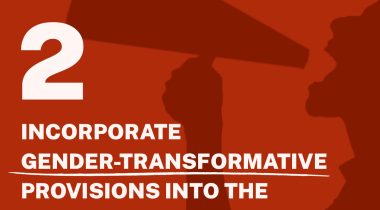
Liz Nelson ■ Guest blog: Illicit Financial Flows: Damaging the foundations of justice

We’re very pleased to share the views of Sakshi Rai, the Programme Consultant at the Centre for Budget and Governance Accountability (CBGA) in New Delhi. In this guest blog Sakshi Rai introduces two new explainer briefs: 
The problem of illicit financial flows poses the greatest development challenge in present times.
Illicit finance is generated through both national and international illicit activities and markets impacting the sovereign ability of states to make coherent and responsive policies. As they are hidden, illicit financial flows easily enter licit financial circles using loopholes in national laws and the sophisticated network of professionals known as gatekeepers and enablers facilitated by the opacity in the international financial system. The loss in revenue through illicit financial flows is damaging to the very foundation and ethos of justice.
The Centre for Budget and Governance Accountability and the Financial Transparency Coalition have published two primers on Illicit Financial Flows and Automatic Exchange of Information from the perspective and experiences of developing countries with the aim of demystifying these issues for a wider audience. In this series, CBGA will also bring out primers on beneficial ownership and country by country reporting.
Challenges for Developing Countries in Achieving the Sustainable Development Agenda
The primer on illicit financial flows aims to highlight the issues and challenges developing countries face in tackling, identifying and putting an end to illicit financial flows and effectively being able to address existing and emerging financing gaps.
Despite developing countries being at the forefront of influencing the Sustainable Development Goals and the Financing for Development Agenda for 2030, illicit financial flows are a tier 3 indicator and hence, are not an urgent priority for many developing countries. This means that there is no dedicated agency or methodology to work on this target and it does not bridge the existing and emerging gaps in the conceptual, contextual and terminological understanding of illicit financial flows for national governments. Without acknowledging the illicit ways developing countries lose money, target 16.4 is limited in its scope. It aims to “significantly reduce illicit financial and arms flows, strengthen recovery and return of stolen assets, and combat all forms of organized crime”. The lack of a comprehensive definition under the target 16.4 and the Financing for Development Agenda does little to empower the struggle in Global South to curtail illicit financial flows and its modalities. Even with illicit financial flow estimates it is hard to illustrate its impact on human rights tied in a single thread. This effectively deters healthy policymaking and a reliable financial climate, especially in developing countries.
Resourcing healthy policymaking
There is a rising ‘cost’ attached to achieving rights with such ingrained inequality and poverty. This cost, exacerbated by illicit financial flows, undermines the ability of a state to allocate appropriate resources to the needs of the society and deliver development justice. Our primers focus on the role of the state in the Global South and the impact of secrecy jurisdictions as they consciously work against the redistributive needs of countries. Transparency and regulatory measures have to be backed by concrete resource mobilisation plans in order to restore public faith in state institutions.
There is an urgent need for developing countries and international institutions to take cognizance of the problem of illicit financial flows and come up with a mutually agreed upon work plan in order to tackle them. International cooperation on tackling illicit financial flows and ensuring tax justice is at the core of upholding social, economic and political rights. It is incumbent upon national governments to protect their fiscal space and re-prioritise public spending. Integrating the development justice agenda with a movement on South to South tax cooperation can pave the way for solutions for developing countries.
(Views are personal.)
Related articles
One-page policy briefs: ABC policy reforms and human rights in the UN tax convention
Tax justice pays dividends – fair corporate taxation grows jobs, shrinks inequality
UN Submission: A Roadmap for Eradicating Poverty Beyond Growth
A human rights economy: what it is and why we need it

Do it like a tax haven: deny 24,000 children an education to send 2 to school

Incorporate Gender-Transformative Provisions into the UN Tax Convention
Just Transition and Human Rights: Response to the call for input by the Office of the UN High Commissioner for Human Rights
13 January 2025

Tax Justice transformational moments of 2024

The Tax Justice Network’s most read pieces of 2024


